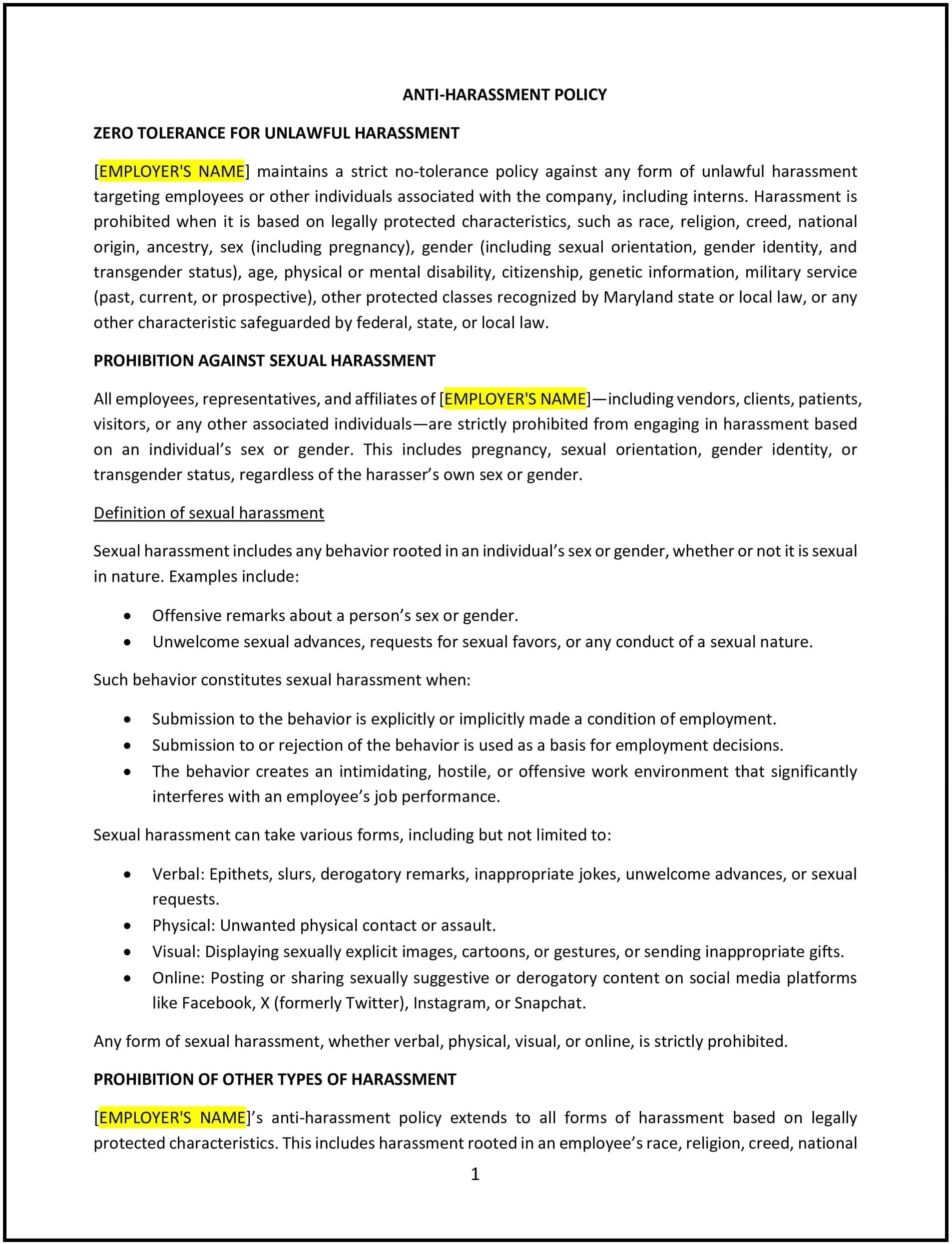Got contracts to review? While you're here for policies, let Cobrief make contract review effortless—start your free review now.

Customize this template for free
Anti-harassment policy (Maryland)
This anti-harassment policy is designed to help Maryland businesses establish a respectful and inclusive workplace by addressing and preventing harassment in all forms. It outlines the expectations for employee behavior, defines unacceptable conduct, and provides procedures for addressing harassment claims promptly and fairly.
By implementing this policy, Maryland businesses can foster a safe work environment, promote accountability, and demonstrate a commitment to preventing harassment and discrimination.
How to use this anti-harassment policy (Maryland)
- Define harassment: Clearly outline what constitutes harassment, including examples of inappropriate behavior such as verbal abuse, unwanted physical contact, or discriminatory actions.
- Establish reporting procedures: Provide employees with clear instructions on how to report incidents of harassment confidentially and without fear of retaliation.
- Identify investigative processes: Detail how complaints will be investigated, including timelines, confidentiality measures, and steps to ensure fairness.
- Set behavioral expectations: Emphasize the importance of mutual respect and outline acceptable workplace conduct.
- Require training: Mandate regular anti-harassment training for employees, supervisors, and managers to promote awareness and understanding.
- Include third-party considerations: Specify that the policy also applies to interactions with clients, vendors, and other third parties.
- Enforce consequences: Define the disciplinary actions for violations, which may include warnings, suspension, or termination.
- Review regularly: Update the policy to reflect changes in Maryland employment laws and workplace needs.
Benefits of using this anti-harassment policy (Maryland)
Implementing this policy provides Maryland businesses with several key benefits:
- Creates a safer workplace: Establishes clear standards for respectful behavior and zero tolerance for harassment.
- Encourages early intervention: Provides a framework for addressing issues before they escalate.
- Protects business reputation: Demonstrates a commitment to ethical practices and workplace inclusivity.
- Reduces legal risk: Helps businesses align with Maryland’s employment laws and anti-harassment regulations.
- Improves employee morale: Builds trust and fosters a culture of respect and accountability.
Tips for using this anti-harassment policy (Maryland)
- Communicate the policy: Ensure employees are familiar with the policy by including it in onboarding materials and employee handbooks.
- Provide resources: Make reporting channels accessible and include contact information for HR or designated personnel.
- Train leaders: Offer specialized training for managers and supervisors to help them recognize and address harassment effectively.
- Encourage reporting: Promote a culture where employees feel comfortable coming forward with concerns or complaints.
- Monitor compliance: Regularly assess the workplace environment and gather feedback to ensure the policy’s effectiveness.
- Stay updated: Keep track of changes to Maryland’s employment laws and make necessary adjustments to the policy.